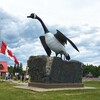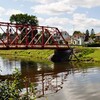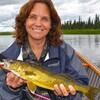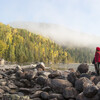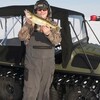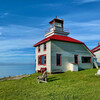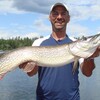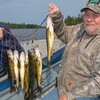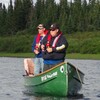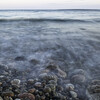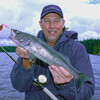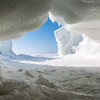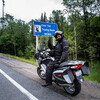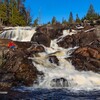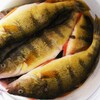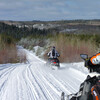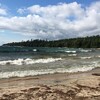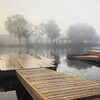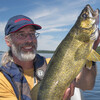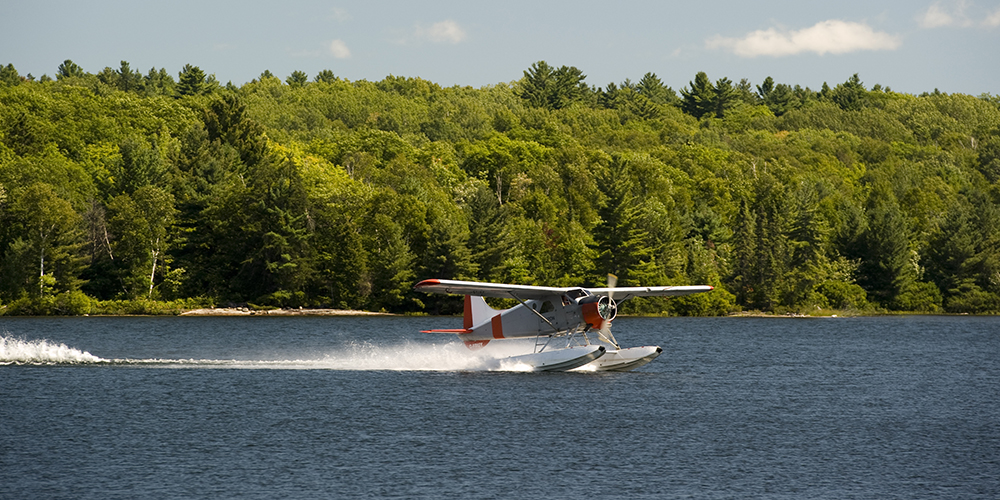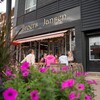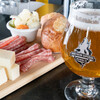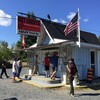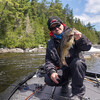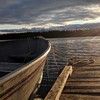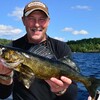
Exploring the Obakamiga Wilderness
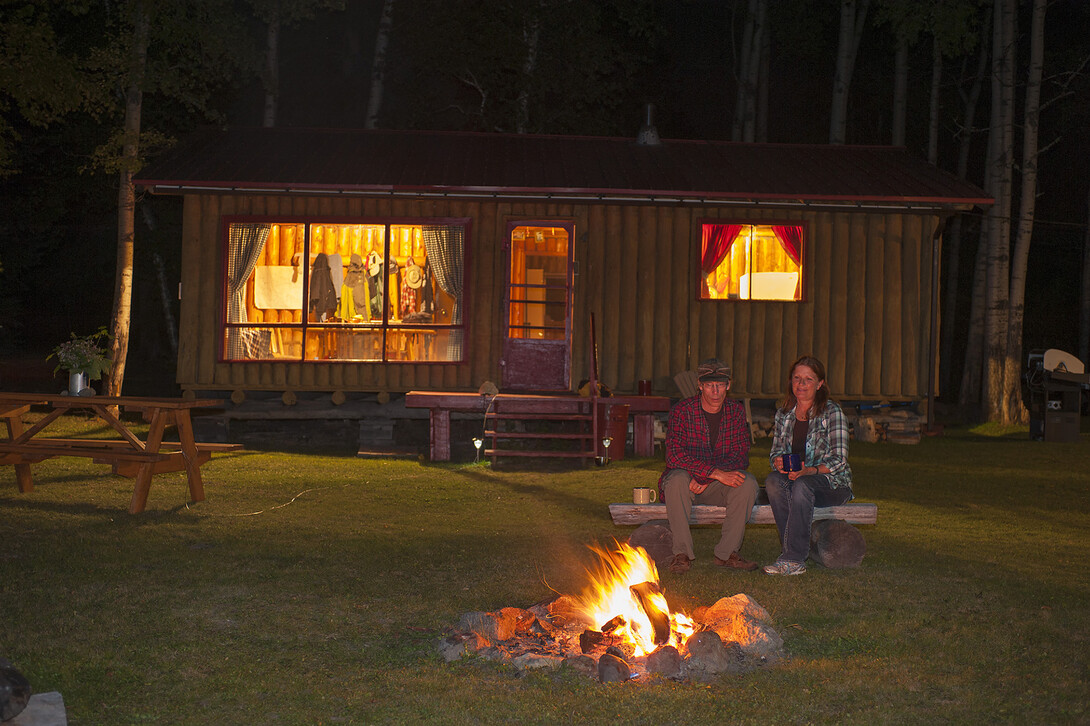
Twisting the throttle of an outboard motor with one hand and gripping a laminated map of Obakamiga Lake in the other, my wife Francine and I head up the east shore. Although Buck Lake Wilderness Lodges owner, John Moffatt, just finished marking up the map with pike and walleye spots, a blistering west wind keeps us tight to the leeward shore, far from any identified hotspots.
Undeterred, we watch the whitecap-licked expanse of the main lake while slowly trolling the calm waters of the sunny east shore. When the uniform 20-foot break is interrupted by the rise of an angular rock pile, Francine and I both set our hooks into our first Obakamiga Lake walleye.
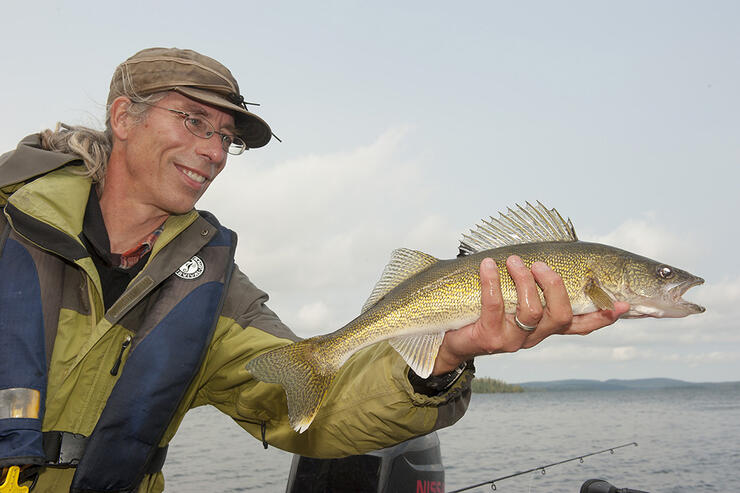
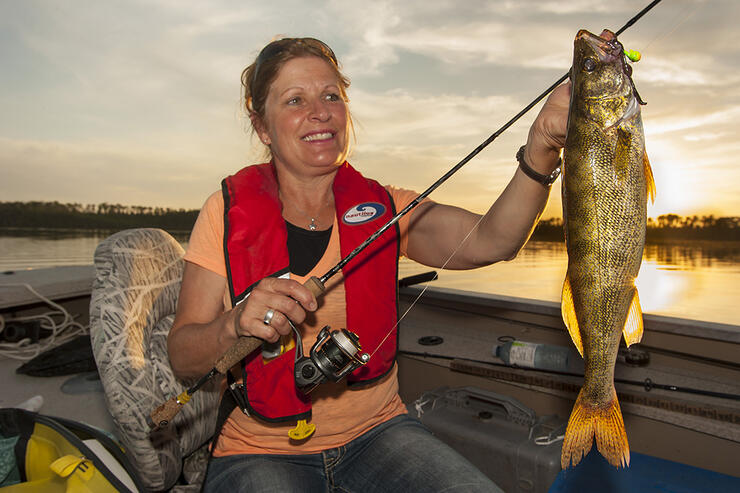
After plucking a half-dozen 16- to 18-inch walleye, we head back to the lodge and nose up the weed-lined mouth of the Buck River to the dock in front of our cabin. Bathed in afternoon sunlight and protected from the wind, the cluster of housekeeping log cabins spread over a broad manicured lawn along the lush shores is an idyllic setting. From our cabin’s picture windows, we see the river meander into the boreal wilderness while ducks bob on its surface and bald eagles swoop overhead.
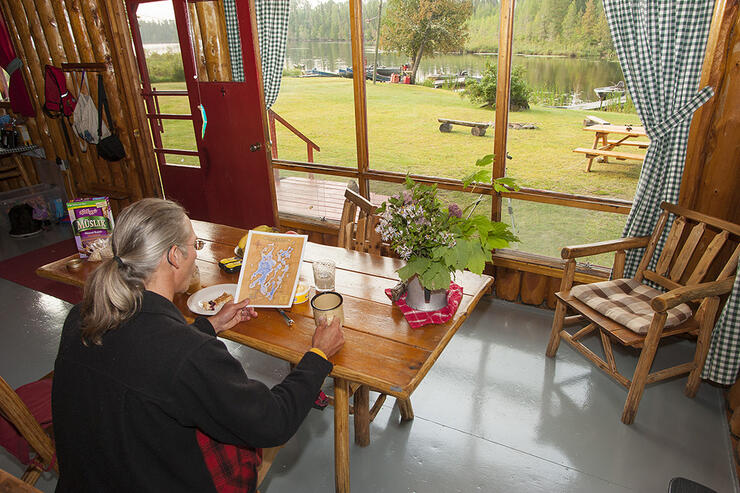
While Francine is happily enjoying the scene, I’m still seized with the need to angle and jump back into the boat. I discover a sharp break along the edge of a saddle, and although I only hook a couple of fish, both are thick, strong, and better than 22 inches. Satiated, I head back to barbecue steaks on the front lawn, crack the seal on a box of the finest red wine, and soak in the view of the river.
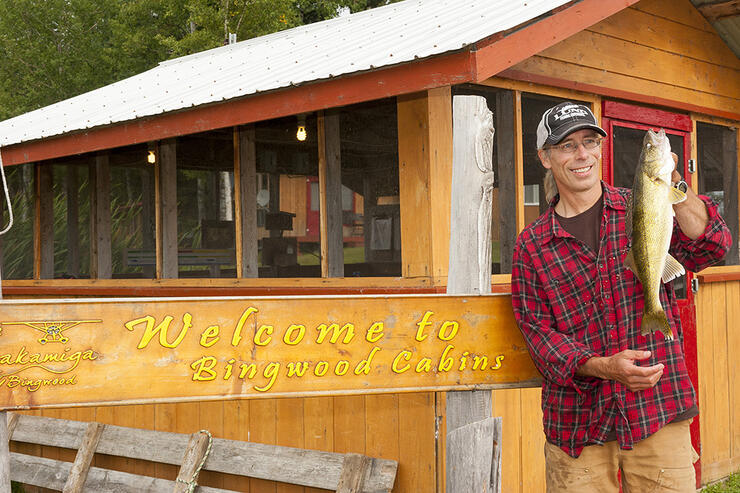
Past and future
A short floatplane flight from Hornepayne, Buck Lake Wilderness Lodges consists of Bingwood Cabins at the southeast corner of the lake and Buck Cabins, built on an elongated point 2 km west. When we pop over to the Buck site, we find John in the midst of framing a large new structure built around an existing giant stone fireplace. John says anglers have been visiting this particular area of Algoma since Buck and Bingwood were built in the 1950s. Since John and his wife Shannon purchased the properties in 2009, they’ve been steadily upgrading buildings and equipment. John points to new diesel generators and 16-foot boats with full floors, live wells, fish finders, and four-stroke motors.
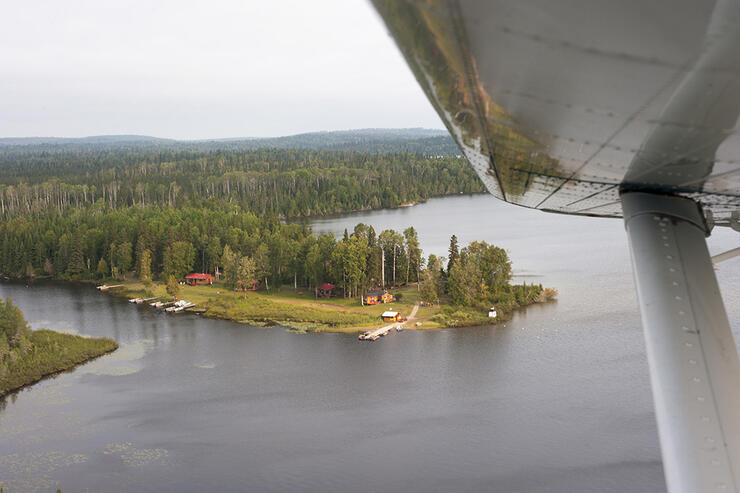
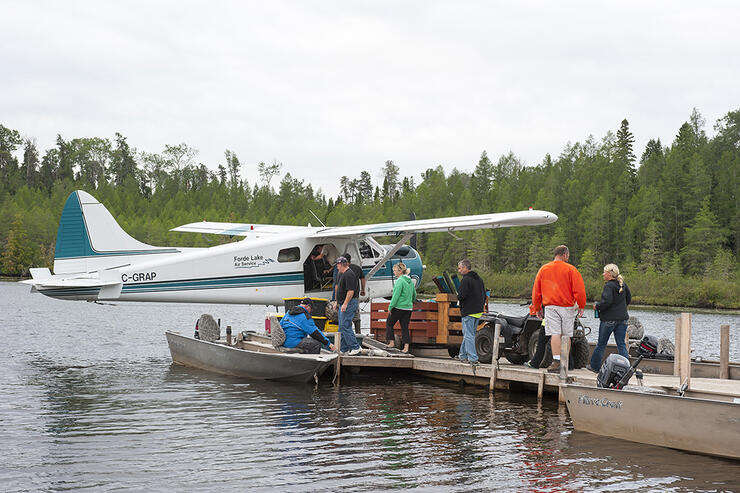
An Island Feast
It’s oppressively hot and sunny when we pull up to the dock at Loon Island for the weekly communal shore lunch. Homemade beans, bread, coleslaw, and tartar sauce are assembled on a long table to complement fried walleye. I feel for John and his staff as they stoke the open fire and slide coated fillets into bubbling oil under the hot afternoon sun. To stay out of their way, I sit under a shady tree, sip on a cold beer, and chat with fellow guests from Michigan, California, and Ohio.
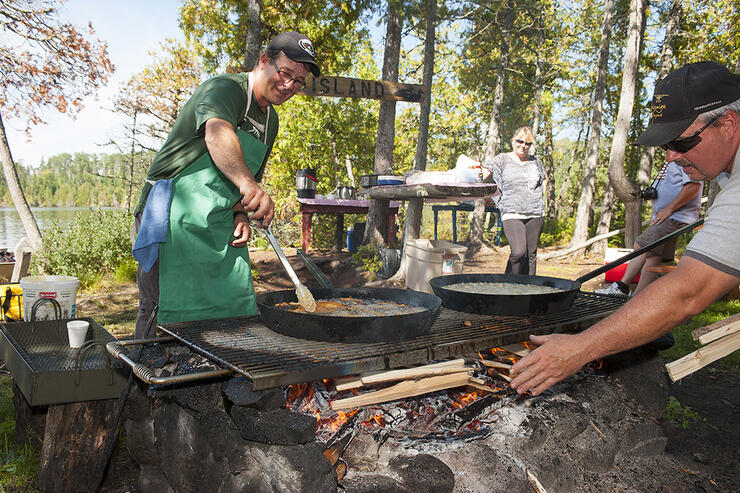
After lunch, we vie for walleye, only to find deep rocky structures to be void. We switch gears, heading to a broad flat of cabbage weed where we troll spinners and lob jigs to connect with pike, perch, and shade-seeking walleye. In the days that follow, we continue to be surprised by the lake’s diverse angling. Whether hiding in thick weeds, swimming shallow flats or lurking over saddles, along edges or rock piles, the fish of Obakamiga keep us entertained.
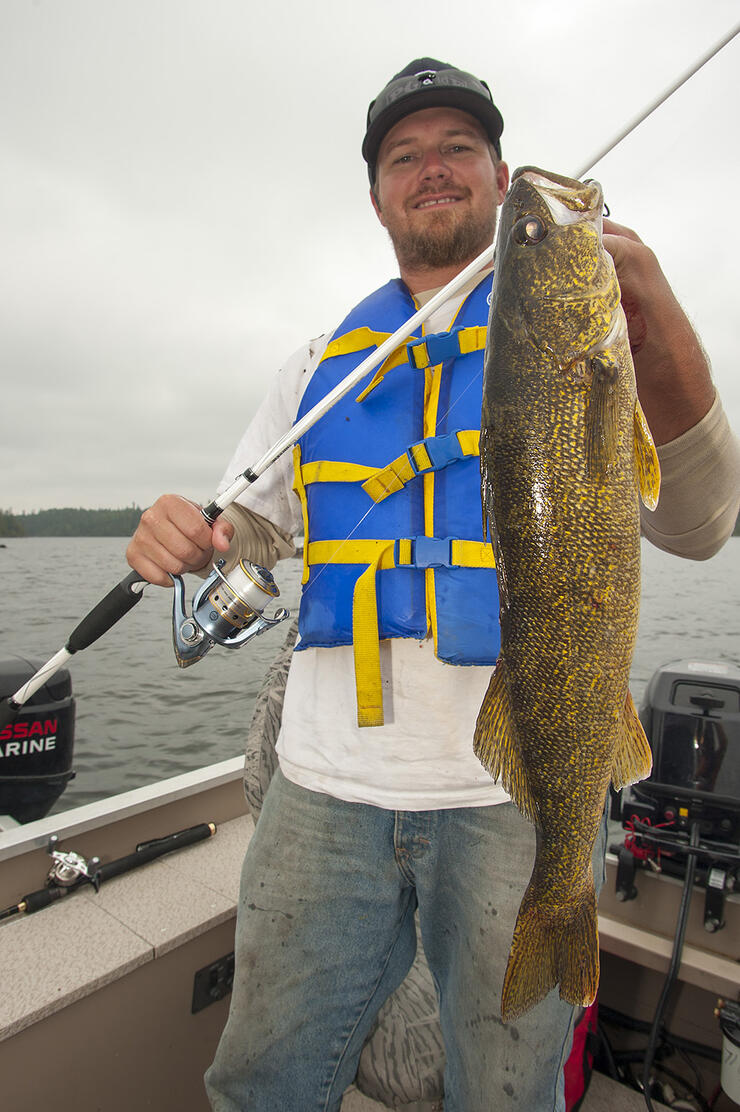
On our last evening, we head up the Buck River, where stained waters cut a wide swath through a spectacular wilderness wetland. Overhanging cedars, water lilies, and hairpin turns continue for 3 km before opening into Granite Hill Lake. With little time to explore, we head straight to what the map calls Walleye Point and immediately catch fish. As we jig walleye from shallow water, the expanse of Granite Hill disappears into the growing darkness. As the warm August sun sinks below rolling hills, the only thing missing is more time to explore this intriguing area of Algoma Country.
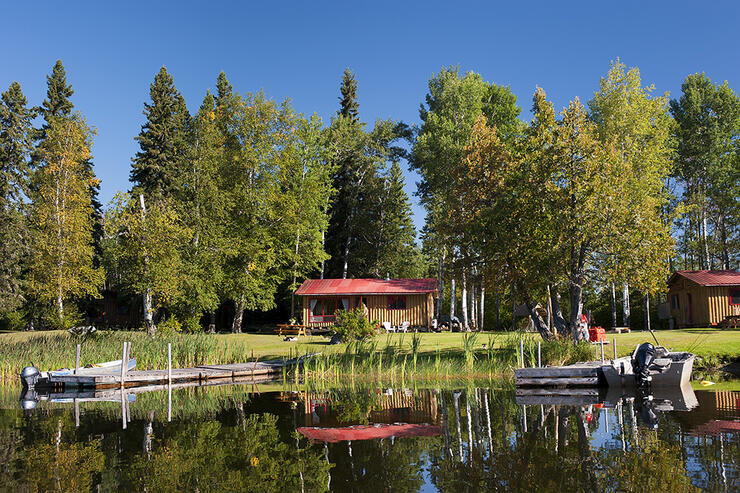
Recommended Articles
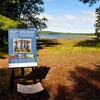
The Group of Seven in Algoma

9 Facts to Know about the Agawa Canyon Tour Train
